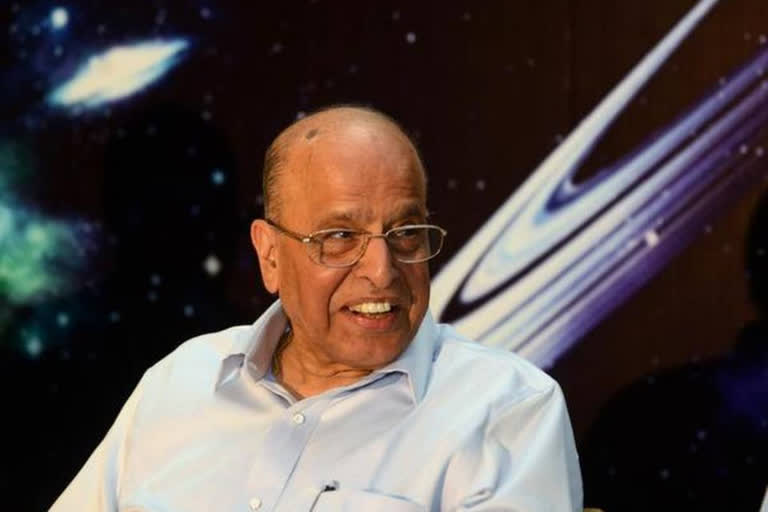Chennai:Analysing the failures of augmented satellite launch vehicles besides addressing the technology and quality issues paved the way for the success of the present generation of PSLVs and GSLVs, former Indian Space Research Organisation Chairman K Kasturirangan said on Saturday.
Addressing the new graduates at the eighth convocation of Indian Institute of Information Technology, Design and Manufacturing, Kancheepuram, he said a sense of despondency overtook the scientists at ISRO due to the failure of the first two augmented satellite launch vehicles (ASLVs).
“I still remember the events in ISRO related to the failures of the first two Augmented Satellite Launch Vehicles (ASLVs).
“Even though a sense of despondency overtook us initially, we did not allow this setback to override our resolve to succeed,” he said.
“The critical analysis and the in-depth assessment of the problems we made and the technology and quality issues that we addressed really paved the way for the success of the present generation of Polar Satellites Launch Vehicles (PSLVs) and Geosynchronous Satellite Launch Vehicles (GSLVs),” Mr Kasturirangan said.
In analysing the failures, the scientists got an insight into the ‘inadequacies’ and the nature of the initial design.
The courage of conviction made the scientists work with redoubled vigour to succeed, he said.
According to the ISRO website, of the four launches, two of the ASLV missions were ‘unsuccessful’ in 1987 and 1988, respectively.
PSLVs has become ‘trusted workhorse’ for the scientists at ISRO following their history of successful launches and also for placing the satellites in to the intended orbit.
On GSLVs, ISRO said it recorded six consecutive successful launches since 2014.
Advising the new graduands, Mr Kasturirangan urged them to have a strong conviction, the persistence to follow through conviction and the courage to face failures.
“I have often felt that life can teach you (students) more from a failure than through success,” he said.
Mr Kasturirangan, also former Chairman of National Education Policy 2020 Committee, said the policy has been crafted to ensure that it touches the life of each and every citizen consistent with their needs and necessities.
“The approach is to realise a new system aligned with aspirational goals of 21st-century education while remaining rooted to India’s value systems and ethos,” he said.
The policy provides an integrated, yet flexible approach to education, he said.
The major emphasis was given in the policy to the aspect of holistic multi-disciplinary education as a base component at all levels of education, he said.
Stating that IIIT Design and Manufacturing was offering futuristic and multi-disciplinary courses with a blend of design and engineering, he said: “institutes with such a profile will transform our nation into a hub for design and manufacturing.”
“The institute is playing a critical role in the country’s efforts towards Make in India campaign launched by our Prime Minister (Narendra Modi). The pace of making in India will be accelerated by the focus on design in India,” he said.
Mr Kasturirangan, who is the Chancellor of the Central University of Rajasthan, said even though there was a preponderance of graduate programmes with a focus on single or sub-discipline (courses), there is an emergence of interdisciplinary graduate programmes.
As many as 306 students graduates were awarded degrees virtually during the convocation, a press release said.
For the current academic year 2020-21, the Institute launched three new M Tech programmes in advance robotics, power electronics system design and computer science and engineering.
Y Aditya Verma bagged the institute’s gold medal for the best graduate student while Vidhathri received a gold medal for a best dual degree student.
Another student B Gowri Muraleedharan was awarded the institute’s gold medal for best postgraduate student across M Tech courses, the release said.
(PTI)
ALSO READ:Tamil Nadu village sets up mini bat sanctuary
